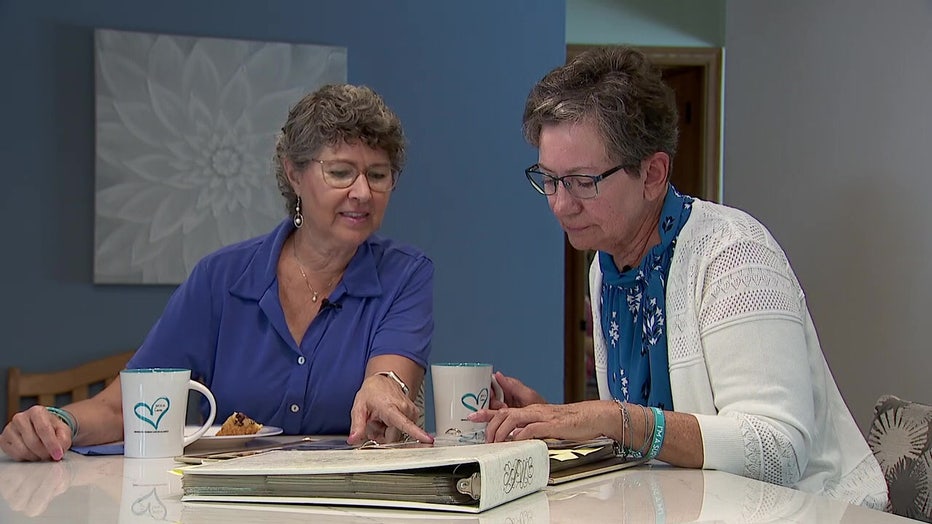Sisters battle cancer side by side, finding strength in each other
MN sisters battle cancer side by side
Sisters Jean and Julie share countless memories, and now they are sharing a journey they never could have imagined – both were diagnosed with gynecological cancers within three weeks of one another.
(FOX 9) - Sisters Jean and Julie share countless memories, and now they are sharing a journey they never could have imagined – both were diagnosed with gynecological cancers within three weeks of one another.
Background
Jean was diagnosed first last year after a couple of brief episodes of stomach issues two months in a row, followed by a third.
"Same thing, I was feeling fine, kind of an overnight tummy bug," says Jean. "Next day feeling kind of flu-y, like stomach flu, but then it was fine. So when the next month it happened the third month, I thought something doesn't seem right. I went in, did a scan, and that’s when they found it."
"The problem is, there’s no early detection for ovarian cancer," says Julie. "So you don’t know you have it until it’s quite advanced."
Desperate to help fight the cancer found in Jean’s fallopian tubes, Julie, who is already a two-time breast cancer survivor, asked her doctor if there might be anything in her genetic makeup that could help her younger sister.
"Two hours after the CT, they called and said, ‘I’m sorry to tell you, but you have a problem, and you need to get in right away,’" says Julie. "I was shocked because I was not expecting that I had ovarian cancer. I was just trying to help my sister."

Promising research
Gynecological oncologist with Minnesota Oncology, Dr. Adrianne Mallen, points out that genetic testing proved no link between the sisters that doctors know of yet. However, promising research offers hope to the cancer community. At any given time, there are between 10 to 20 clinical trials underway in Minnesota focused on gynecological cancer research. Julie, with stage four ovarian cancer, is a part of one of them and is working to help break the myth that clinical trials are a "last resort."
"In the cancer world, we are never going to allow someone to be on a trial where they are not getting the standard of care. You are not getting the care that you need, it just might be you don’t get something that doesn’t necessarily prove to be better," says Dr. Mallen. "In the cancer world, it would be unethical to not be giving the care we need, and the care we know works."
"So far, I’m happy to report, that it’s been a year since I’ve been on this pill and all of my CT scans are stable. All the remaining cancer is stable; it has not grown any bigger," says Julie. "I call that a win. We celebrate all of our wins."
MOCA’s Teal Strides walk and run
Mary Pat Oslund, a 19-year ovarian cancer survivor, is organizing MOCA’s Teal Strides walk and run at Rosland Park on Saturday, Sept. 7. She is dedicated to getting more women talking and paying attention to their bodies.
"Not enough people know about ovarian cancer; we can’t talk enough about it. The symptoms are there—they are very, very subtle, so people ignore them," says Oslund. "We always say bloating or abdominal pain, feeling full quickly, urinary frequency issues. Those are really subtle things to blow off, but if you are having them on a regular basis, you really need to talk to your doctor and advocate for yourself."
Moving forward
"We keep saying, are we ever going to have a conversation that doesn’t involve our GI issues?" jokes Jean. Julie replies, "No, probably not."
These days, Jean, Julie, and their sister Janice aren’t shy about talking about any of it. They look forward to walking side by side on Saturday and raising support for MOCA and more cancer research. And while a shared cancer diagnosis and similar treatment journey can be viewed as unlucky for many families, Jean and Julie say the support of each other, their family, and the services MOCA provides makes them extremely lucky and far from alone.
"What life has thrown at us these last few years, we have relied on each other a lot," says Julie. "We need each other."

